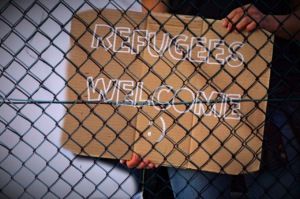General
Denmark accepts just 200 quota refugees from Rwanda
This article is more than 5 years old.
Contrary to the Finance Act’s agreement to accept 500 refugees, the government cites integration challenges and the high costs

Due to the integration challenges and high correlating costs, the the number of refugees from Rwanda has been limited to 200 (Pixabay/kalhh)
In the Finance Act, money was originally set aside to receive 500 quota refugees. However, Mattias Tesfaye, the immigration and integration minister, believes that the integration challenges are too great to accommodate such a large number, so he has decided to only accept 200 refugees from Rwanda.
“Some refugees have settled well in Denmark. But far too many are still on cash benefits. In fact, five out of six refugee women are still out of the labour market after three years in Denmark. It is very, very expensive and totally unsustainable. That is why I proceed cautiously,” said Tesfaye.
According to 2020 figures from the Immigration and Integration Ministry, 36 percent of refugees aged 21-64, along with family reunified with them, were in employment after three years in Denmark. Among men, 57 percent were in employment in the first quarter of 2020, but only 17 percent of women.
Parties support original 500
Numerous parties have emphasised that they would like Denmark to accept the original number of refugees.
“I am happy that we take 200 more than we did under [Inger] Støjberg, but I am frustrated that we do not sign up for this collaboration and do not take the 500 that we usually take,” said Andreas Steenberg, a spokesperson for Radikale.
Under the VLAK government, the responsible minister, Inger Støjberg, refused to accept quota refugees, citing the upsurge in asylum-seekers that started in 2015.
The government already supports a program in which Rwanda helps to receive asylum-seekers and refugees from Libya’s detention centres. A large proportion of the refugees residing in Rwanda are Christians from DR Congo and Burundi.










































